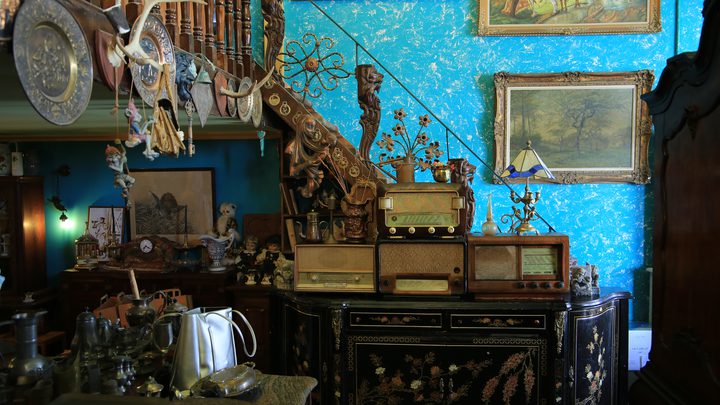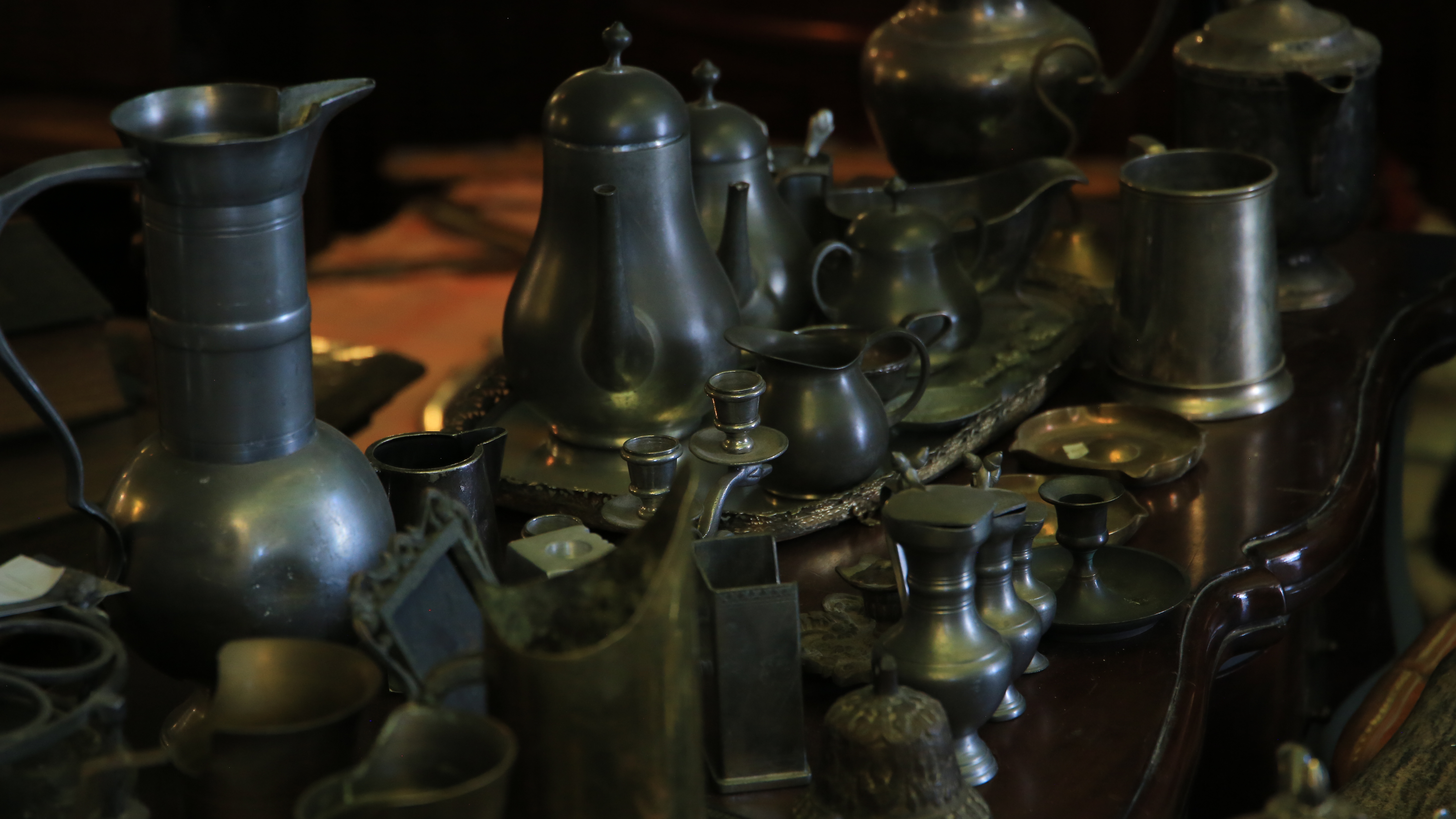A new gallery in the city of Nablus, northern West Bank is showcasing the work of two young Palestinian men who are passionate about preserving and sharing the history of their culture through antiques.
Mohammed Abu Habis and Tarek Jebsha have been collecting antiques since they were teenagers. They are experts in the field and have amassed a collection of rare and valuable artifacts.
The gallery, called Antika Berlin, opened its doors in 2021. It features a wide variety of artifacts, from ancient pottery and jewelry to more recent works of art. Each piece has its own story to tell, and Abu Habis and Jebsha are eager to share them with visitors.
One of the most striking pieces in the collection is a silver candlestick that dates back to the 18th century. The candlestick is beautifully crafted and decorated with intricate designs. It is a reminder of the rich cultural heritage of Palestine.
Another highlight of the collection is a pair of shoes that were made for a Palestinian bride in the early 20th century. The shoes are made of silk and decorated with beads and sequins. They are a testament to the craftsmanship and artistry of Palestinian culture.
Abu Habis and Jebsha are committed to preserving these treasures for future generations. They believe that antiques are a powerful way to connect people with their past and to learn about the history and culture of different cultures.
“We want to use Antika Berlin to share the stories of Palestine and its people with the world,” said Abu Habis.
The gallery is open to the public and offers a variety of educational programs. It is a must-see for anyone interested in learning more about the history and culture of Palestine.
In addition to the antiques, the gallery also features a number of contemporary artworks. These artworks explore the themes of identity, memory, and displacement. They offer a unique perspective on the Palestinian experience.
Antika Berlin is a unique and important space for the Palestinian community in Nablus. It is a place where people can learn about their history and culture, and a place where they can come together to celebrate their heritage.
The story of how Abu Habis and Jebsha came to be antique dealers is itself a testament to the power of these objects. The two men met as teenagers in a refugee camp in Nablus. They quickly bonded over their shared love of Palestinian culture and history.
One day, Abu Habis was walking through the streets of Nablus when he saw a man selling antiquities. He was immediately drawn to the objects and started to learn more about them. He soon realized that he had a passion for collecting and preserving these treasures.
Jebsha, on the other hand, had a different introduction to antiques. He was born in Palestine and grew up surrounded by traditional Palestinian objects. He developed a deep appreciation for these objects and wanted to find a way to share them with others.
The two men decided to join forces and start their own antique business. They called it Antika Berlin.
Antika Berlin has quickly become a popular destination for tourists and locals alike. The gallery has been featured in a number of international publications, and Abu Habis and Jebsha have been interviewed by several media outlets.
The two men are proud of what they have accomplished with Antika Berlin. They believe that the gallery is a valuable resource for the Palestinian community and a way to share their culture with the world.
“We want to show the world that Palestine is not just a land of conflict,” said Jebsha. “It is also a land of rich culture and history.”
Antika Berlin is a testament to the power of these objects to connect people and share stories. It is a place where people can learn about the past, present, and future of Palestine.







